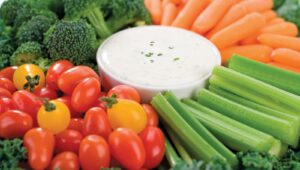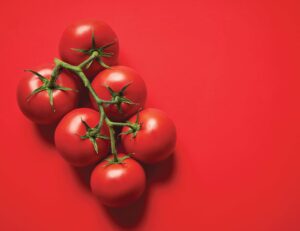Do you often feel bloated, constipated, have heartburn, GERD (Gastroesophageal Reflux Disease), gas, diarrhea, or have IBS (Irritable Bowel Syndrome) or IBD (irritable bowel diseases like Crohn’s and ulcerative colitis)? These symptoms are manifestations of poor gut health. Hippocrates stated over 2000 years ago, “All disease begins in the gut.” We are now beginning to understand how right he was in his assessment. More than 100 million Americans have digestive issues. Two of the top five selling drugs in America are for digestive problems and they’re costing us billions of dollars. Let’s look at our gut a little closer to learn how to help ourselves get well again.
THE GUT FLORA
Our gut is home to trillions of thriving bacteria. With over 400 diverse bacterial species, the human gut contains 10 times more bacteria than all the human cells in the rest of the entire body. We are in fact more bacteria than we are human. Your body contains about the same number of gut bacteria molecules as it does cells for the rest of your body; thus, your gut is critical for your health!
Probiotics are bacteria that line your digestive tract and support your body’s ability to absorb nutrients and fight infection. Probiotics have been in our system from the moment we were born. When a newborn in the birth canal of the mother during delivery, the baby is exposed to the bacteria of his or her mother for the first time. This starts a chain of events inside the baby’s GI tract and the infant’s GI tract starts to produce good bacteria.
Prebiotics, on the other hand, are a special type of fiber. It’s an undigestible fiber that is food for the good bacteria in your gut. Prebiotics are found primarily in fiber-rich foods and your gut bacteria thrive on indigestible fiber. Inulin is one type of water-soluble fiber in asparagus, garlic, leeks and onions that help to nourish your beneficial gut bacteria.
Spore-based probiotics, or sporebiotics, are an excellent complement to regular probiotics. They are part of a group of microbes called bacillus. These sporebiotics do not contain any live bacillus strains, only their spores and they are unaffected by antibiotics. These can be taken in conjunction with antibiotics to support gut health.
THE IMMUNE SYSTEM AND DISEASES ASSOCIATED WITH POOR GUT HEALTH
Between 70 and 80% of our immune system is located in our digestive tract! A large percent of our health is dependent on a healthy gut. In addition, our digestive systems are the second largest part of our neurological system. It’s called the enteric nervous system and is located in the gut. This is why it’s called our second brain largely because it is responsible for making 95% of the serotonin (the feel good neurotransmitter) as well as having significant impact on brain function and mood.
Digestive problems wreak havoc in the entire body, leading to other health conditions like allergies, arthritis, dementia, acne and other skin disorders, mood disturbances, autism, autoimmune disease, thyroid imbalances, chronic fatigue, cancer and more.
The health of your gut determines what nutrients are absorbed and what toxins, allergens, and microbes are kept out.
We are exposed to environmental toxins and inflammation-causing molecules from food and the environment that negatively impact digestion through pathways such as leaky gut or intestinal hyperpermeability. In leaky gut, the tight junctions that are supposed to keep disease-contributing compounds from leaving the digestive system are disrupted, allowing many harmful entities into the bloodstream that don’t belong there, thus creating inflammation-the root of most diseases.
PROBIOTIC KILLERS
Many environmental and dietary habits can lead to poor gut health. Daily probiotic intake is not enough to heal and maintain functional gut health.
Gut bacteria killers include:
- Medications and overuse of prescription antibiotics
- Smoking
- Refined sugars and processed foods
- Poor sleep
- Gluten
- Lack of exercise
- GMO foods
- Emotional stress
- Alcohol
BENEFITS OF PROBIOTICS
Probiotics promote good digestive health. They also provide protection against inflammatory bowel diseases such as ulcerative colitis and Crohn’s disease. In addition, studies suggest that probiotics are effective against several forms of diarrhea including antibiotic-associated diarrhea, acute diarrhea, and traveler’s diarrhea. Studies have also shown that probiotics reduce the pain and severity of IBS symptoms, aid in the eradication of H. pylori, and treat pouchitis, a condition that occurs after the surgical removal of the large intestine and rectum.
Researchers have also discovered the importance of the gut-brain connection and believe that probiotic supplements may help to alleviate symptoms of anxiety, reduce depression symptoms, and some abnormal behaviors in autism by reducing inflammation along this gut-brain connection. Furthermore, a large analysis determined that probiotics help to lower blood pressure by improving lipid profiles. Several large scale studies have confirmed that probiotics benefit diabetics by improving insulin sensitivity and decreasing the autoimmune response found in diabetes.
These good bugs have a wide array of benefits in addition to the abovementioned. They regulate hormones, reduce inflammation, may improve non-alcoholic fatty liver disease, maintain beautiful skin, produce vitamin B12, butyrate, and vitamin K2, create enzymes that destroy harmful bacteria, and stimulate the secretion of IgA and regulatory T-cells which support our immune system.
WHAT TO LOOK FOR IN PROBIOTIC SUPPLEMENTS
Be aware that there are different types of strains of probiotics. Different strains have different health benefits. Not all probiotics are created equal. The following are things to look for in a high quality probiotic supplement:
- Make sure the brand comes from a reputable, non-GMO brand, manufactured according to current Good Manufacturing Practices.
- Look for high CFU (colony forming units) of 30 billion or higher
- Survivability: Look for strains like Bacillus coagulans, Lactobacillus acidophilus or rhamnosus, Saccharomyces boulardii, Bacillus subtilis, or other cultures or formulas that ensure probiotics make it to the gut and are able to colonize.
- Stability: Some probiotic strains need to be kept cold in order to preserve their potency. Anytime you see probiotics on a store shelf and not in a fridge, just assume that the once live strains are now dead and your money has been wasted. The only exception to this rule is soil based probiotics.
- Look for a probiotic with a prebiotic included. Generally, this works better when given together
- Cheap usually means not potent, so don’t waste your money on something that may not work. At worst, you can hurt yourself if some of these cheap products are contaminated with pathogenic bacteria.
CONCLUSION
Probiotics, the healthy bacteria in our digestive tract, is crucial for general health and support of our immune system, as well as reducing chronic inflammation. The balance of gut flora is paramount for our general well-being whether it be physical, emotional, or mental. Do your research and make sure the probiotic you choose is right for you and your body.






